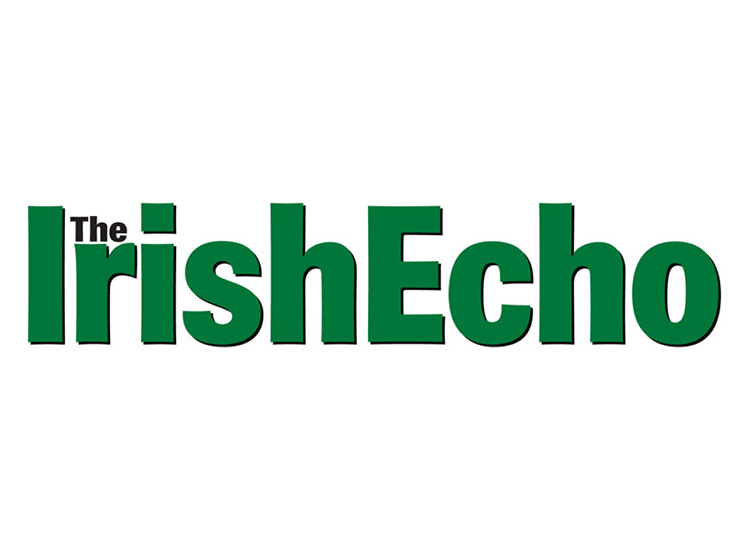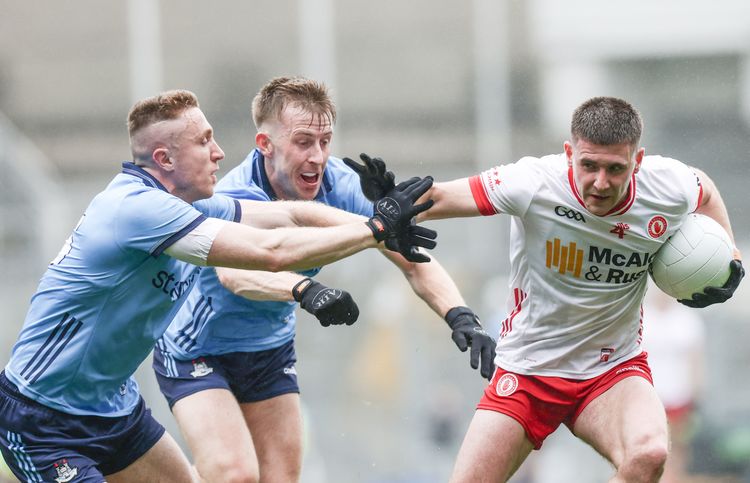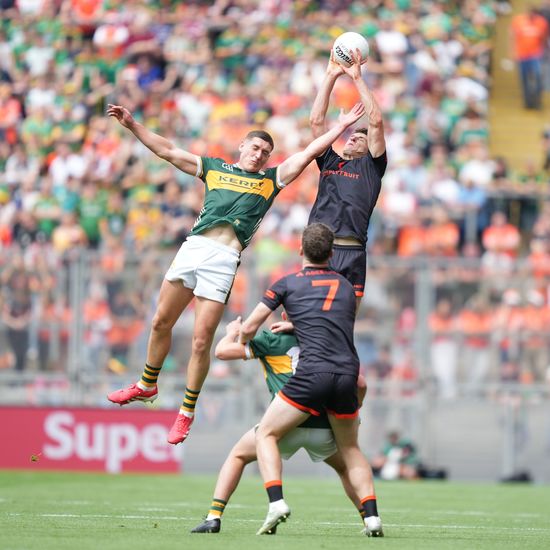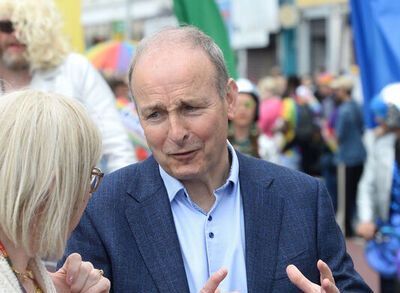By Áine Ní Shionnaigh
This week marks the 15th anniversary of the tragic death of John F. Kennedy Junior, only son of President John F. Kennedy. JFK Jr. perished when the light aircraft he was piloting crashed into the Atlantic Ocean. Also on board the flight to Martha’s Vineyard was his wife and sister-in-law. The anniversary prompted me to ponder on the sense of tragedy that befell father and son.
The "Kennedy Curse" refers to the series of tragedies that have befallen the family. This “curse” is more likely, and in part, due to the fame, wealth, and power that brought the Kennedys attention in the first place, rather than anything as mysterious as a "curse.” A sense of tragedy became evident very early on in John Junior's life. His dad's state funeral was held on his third birthday. In a moment that became an emotional and iconic image of the 1960s, John stepped forward and rendered a final salute as the flag-draped casket was carried out from the cathedral. At the age of seven, he spent six idyllic weeks in Ireland with his mother and his sister where he visited, among many places, his great great- grandfather's homestead in Dunganstown, County Wexford, and met with President Eamon de Valera. As an Irish person I will never tire of the subject of the 1963 presidential visit to Ireland, how Ireland embraced him, how he embraced the Irish, and thus began a love affair that will go down in the realms of history.
President John Fitzgerald Kennedy was, and is, someone to aspire to, someone to learn about, and of course, if you are Irish, someone to argue about. Countless books have been written and re-written about the person he was, the image he portrayed, the reforms he fought for, and the abrupt ending that is almost too tragic to comprehend. His assassination left us with the eternal questions:
Where would his thinking have led the country and the world?
What more greatness would he have been capable of achieving?
The tragic ending of President Kennedy’s life, less than five months after he waved goodbye to Ireland, ensured that his memory will never ever fade with the passage of time. To understand fully the magnanimous effect of President Kennedy’s visit to Ireland in those last days of June 1963, one should recall the economic conditions of Ireland at the time. As the 1950s drew to a close, Ireland was in a state of depression, there was shocking and appalling poverty.
Noel Browne‘s book “Against the Tide" gives some accurate insight into what real poverty was. The closed economy rule that had been adopted by de Valera ensured that we remained an island in every sense of the term. In the early 1960s, Sean Lemass began to adopt the “First Program for Economic Expansion” and a chink of light slowly appeared in what was a dark and bleak time. The stage was perfectly set for a visit from one of our own, the ultimate returned immigrant from1600 Pennsylvania Avenue, Washington. His visit epitomized perfectly the coming together of the transatlantic story of Irish America and Ireland. President Kennedy of course meant even more to the Irish in America as he validated who the Irish were. He was the first American president who identified himself as Irish and Catholic and interestingly, there hasn’t been anyone since. In terms of “respectability” for the Irish, the Kennedy influence is unquestionable. So, on the 26th of June, 1963, when President John F Kennedy stepped off the plane in Ireland, Ireland embraced him and he embraced the Irish.
Many history books begin with his grandfather, Patrick, who had worked his way up in Boston and became a saloon owner and a politician. However, the real beginning, the fact that the President's eight great grandparents were Famine immigrants of course resonated strongly with Kennedy. How could it not? On the subject of emigration, he remarked to the people of New Ross in County Wexford: "When my great grandfather left here to become a cooper in East Boston, he carried nothing with him except two things: a strong religious faith and a strong desire for liberty. I am glad to say that all of his great grandchildren have valued that inheritance". Also on display in the John F. Kennedy Presidential Library and Museum is the Fitzgerald family Bible brought from Ireland by President Kennedy's forebears. This same Bible was used when John Fitzgerald Kennedy took his oath of office as 35th President of the United States on January 20, 1961. The Bible is an 1850 edition containing a handwritten chronicle of the Fitzgerald family from 1857 and including a record of the birth of John Fitzgerald Kennedy on May 29, 1917. In 1948, Kennedy wrote a less well known book titled "A Nation of Emigrants.” The coldest cynic could not fail to be warmed by the images of John F. Kennedy, the President of the United States of America, the Harvard-educated great-grandson of Patrick Kennedy, back "home" in his cousin Mary’s cottage in Dunganstown, Co.Wexford cutting cake and having copious cups of tea , being introduced to his relatives.
It was noted at the time that when the crush of chaotic crowds threatened to become overwhelming and the security men stepped in to intervene, the president waved them away with the words “It’s all right, these are my people.” Most poignantly perhaps is that he told people afterwards that, that one Irish day at the hearth of his cousin Mary in Wexford, and indeed, the four days in Ireland as a whole, were the highlight of his life. His speech in Dublin to the Oireachteas was the first Dail Eireann speech ever broadcast. Unbeknownst to everyone at the time, this was the start of Ireland’s genuine economic growth. Kennedy talked about Ireland's position in the world, he acknowledged that “Yes, you are a small country but……………”
And that is where the story of modern Ireland began: “my friends: Ireland’s hour has come. You have something to give to the world - and that is a future of peace with freedom”. He gave Ireland one thing: he encouraged Ireland to aspire to greatness. In a time of post colonialism, where countries were slowly beginning to crawl out of the claws of colonialism, Kennedy put Ireland at the forefront of this movement.
When President Kennedy returned to the White House after his Irish visit, he was so taken with the Irish experience that he not only bored his staff to death replaying home movies of his Irish trip, he also began to study the Irish language. Perhaps, in the Oval Office, he pored over dictionaries and grammar books and I suspect, even his brilliant mind was perplexed by a language that had so many tenses and clauses. Perhaps he wanted to have the privilege of being able to speak one of the oldest living languages in Europe. In the Irish language, you do not separate what belongs together. President Kennedy recognized this, and appreciated it. His trip to Ireland was transcendent. He arrived as an Irish Norman Fitzgerald, and left as an Irish Gaelic Kennedy. Kennedy had observed the Irish Army Officer Cadets in the Garden of Remembrance in Dublin and talked much about them afterwards.
These same cadets from the Curragh, Co. Kildare were flown over for his funeral to perform the final salute at his graveside. Can there be anything more poignant that the image of these young, uniformed Irishmen performing the final graveside salutes. These same soldiers represented the Irish people that President Kennedy felt compelled to turn back to and say "I'll be back in springtime.” Little did anyone know, that long before springtime, so many would be standing silent, at a graveside in Arlington Cemetery, bidding President John Fitzgerald Kennedy a final farewell on his last journey home. And that 36 years later, no time at all really, the world would be saying farewell to his only son.
Ar dheis Dé go raibh a anam, agus anam a mhac.











